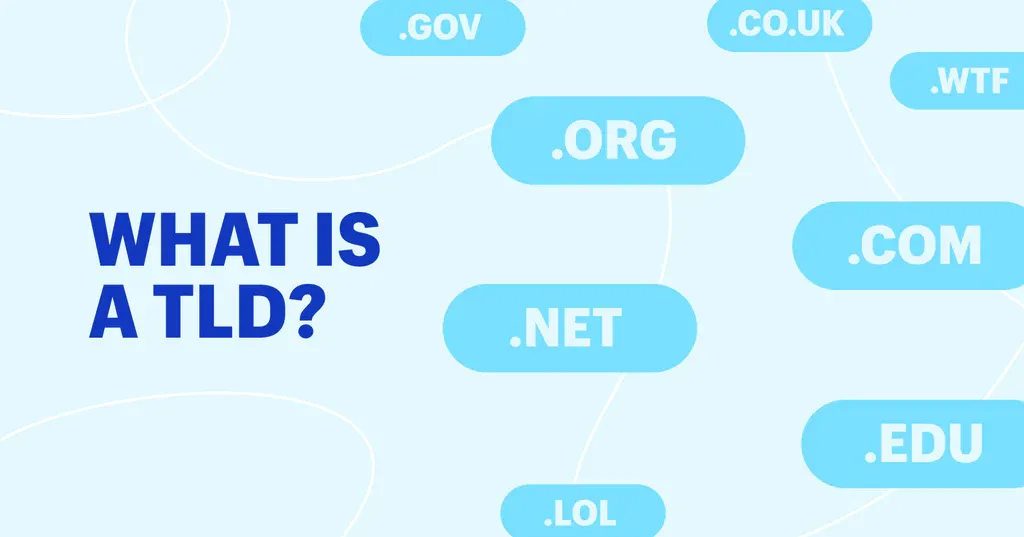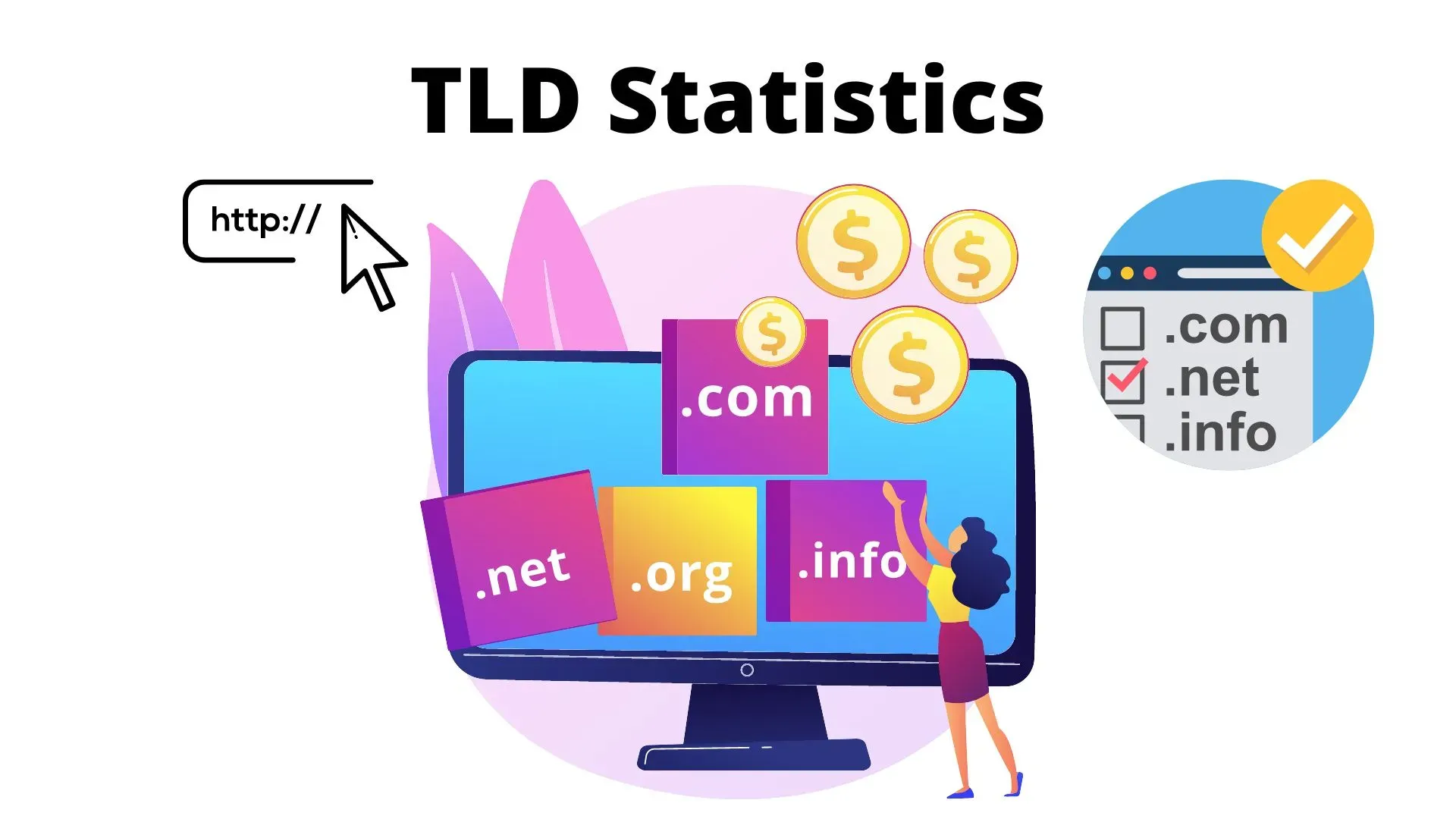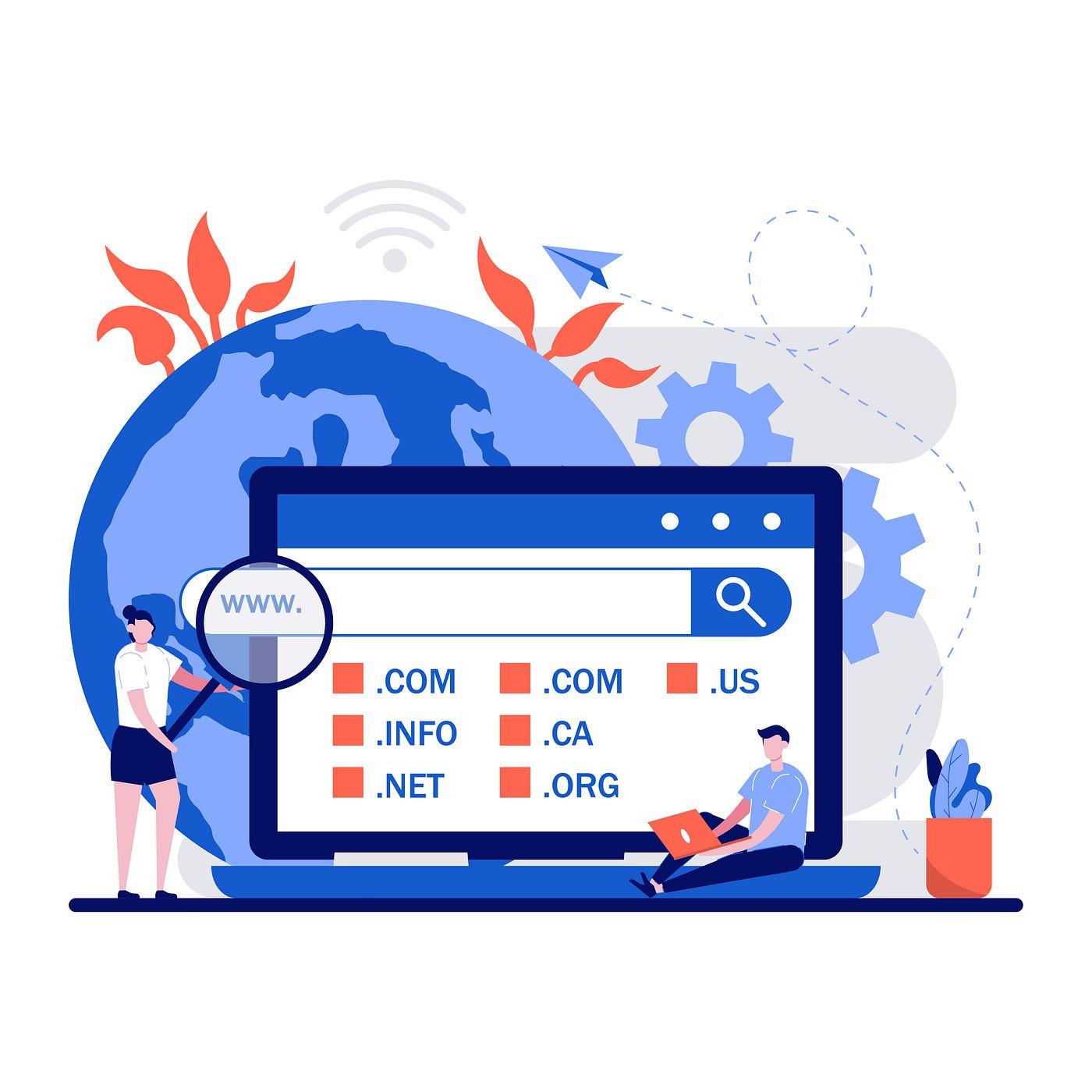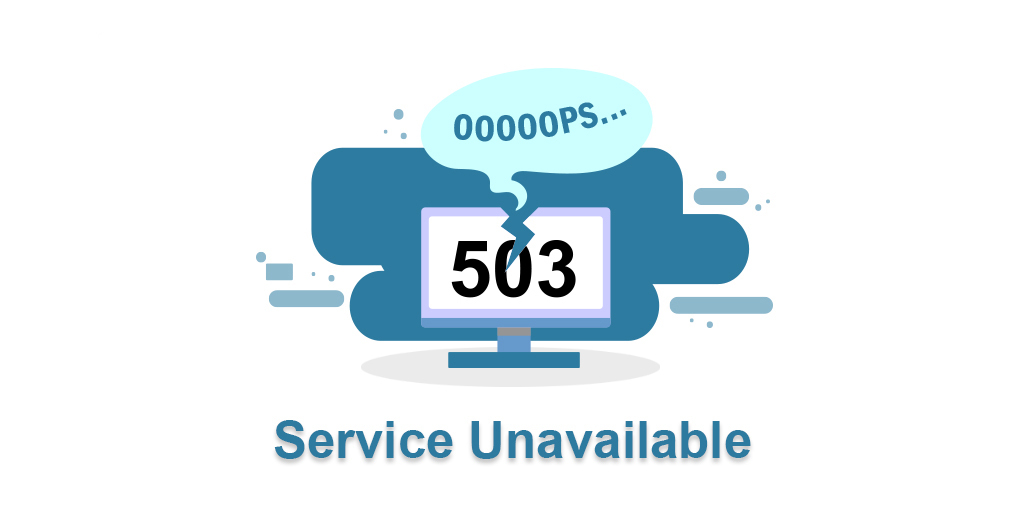Your domain is your digital identity. It's your online address, the pl the world connects with your web presence. But have you ever wondered what the letters that follow the dot in your domain name actually mean? These are known as 'Top-Level Domains' (TLDs), and can impact your online success.
In this blog, we will explore the importance of TLD and how they can help your online journey.
Why the choice of TLD matters for a personal website?
People often underestimate the importance of choosing the right Top-Level Domain (TLD) for their personal websites. You might be tempted to use a most popular .com TLD or the default .net. However, the choice of TLD can greatly influence how your personal website is perceived.
Your TLD is like your digital signature. It speaks about your website's purpose, relevance, and audience. If you're an artist, a .art TLD can add a creative flair. For tech enthusiasts, a .tech TLD signals your tech-savviness. As a photographer, why not opt for .photo to make your niche clear? By carefully selecting your TLD, you can boost your personal brand, making it memorable and engaging to your visitors.
Moreover, search engines take TLDs into account when ranking websites. While .com domains have their advantages, niche-specific TLDs can actually boost your website's visibility in search results. This means more traffic, more exposure, and a stronger online presence for your personal website.
But the importance of your TLD goes beyond this. It's a key element in establishing trust with your audience. A relevant and meaningful TLD aligns your website with the expectations of your visitors.

Understanding TLDs
At its core, a Top-Level Domain (TLD) is the rightmost part of a domain name, the part that follows the last dot in the web address. You're likely familiar with some common TLDs like .com, .org, .net, and .gov. They're the .punctuation marks in the online language.
Different types of TLDs
Top-Level Domains (TLDs) come in an a lot of styles, each designed to serve a particular function or purpose. Choosing the right TLD for your website is crucial, as it can significantly impact your online identity.
1. Generic TLDs (gTLDs):
- .com: This one needs no introduction. Originally intended for commercial use, .com has become the default choice for most websites.
- .org: Associated with organizations and non-profits, this TLD often shows a commitment to a cause or a community.
2. Country Code TLDs (ccTLDs):
- .uk (United Kingdom): A TLD specific to the United Kingdom, often used to appeal to a UK-based audience.
- .ca (Canada): A popular choice for Canadian websites, indicating a focus on Canadian visitors.
- .io (British Indian Ocean Territory): While technically a ccTLD for a remote territory, it's widely used by tech startups, thanks to its "Input/Output" connotation.
3. Sponsored TLDs (sTLDs):
- .edu: Reserved for educational institutions, it's a symbol of knowledge and academia.
- .gov: Exclusive to U.S. government agencies.
4. New TLDs:
- .app: Ideal for mobile apps or software developers looking to establish a digital presence.
- .blog: Perfect for bloggers and online publications.
- .guru: A favorite of professionals and experts.
- .design: Shows an emphasis on aesthetics and design.
5. Niche TLDs:
- .music: Catering to musicians and the music industry.
- .food: An obvious choice for food-related businesses or culinary enthusiasts.
- .travel: Tailored for travel agencies, bloggers, or anyone passionate about travels.
6. Community TLDs:
- .eco: Created for eco-conscious individuals and businesses, emphasizing sustainability and environmental responsibility.

Best TLDs for Personal Websites
When it comes to personal websites, and it plays a significant role in how you present yourself online.
1. .me:
- Why it's great: As the ultimate domain extension for personal branding, .me tells the world, "This is all about me." It's an excellent choice for personal blogs, portfolios, or any site where you want to put yourself front and center.
2. .name:
- Why it's great: Designed specifically for individuals, .name allows you to use your first name, last name, or a combination of both. It's a unique option for creating a memorable and personalized web address.
3. .blog:
- Why it's great: If you're passionate about blogging and want your domain to reflect that, .blog is an ideal choice.
4. .portfolio:
- Why it's great: For artists, designers, photographers, or anyone showcasing their work, .portfolio is an obvious pick. It serves as a virtual gallery of your creative projects..
5. .online:
- Why it's great: is suitable for a wide range of personal websites. It's a modern and versatile TLD that's easy to remember.
6. .about:
- Why it's great: If your website's main purpose is to provide information about you, .about is a self-explanatory choice.
7. .space:
- Why it's great: .space is perfect for those looking to create their own digital place. Whether you're a writer, thinker, or creator, it gives you room to express yourself.
8. .social:
- Why it's great: If you're active on social media and want to create a hub for your online presence, .social is an good choice.
9. .personal:
- Why it's great: Sometimes, simplicity is key. .personal is direct and to the point, making it suitable for personal websites with diverse purposes.
10. .nameplate:
- Why it's great: Although not as common as others, .nameplate perfectly symbolizes what a personal website often is: your digital nameplate on the internet.

Factors to Consider When Choosing a TLD for Your Personal Website
Selecting the perfect TLD (Top-Level Domain) for your personal website is a decision that should not be taken lightly. It plays a key role in shaping your online identity and how visitors perceive your site.
1. Relevance to Your Brand or Personal Identity:
- Your chosen TLD should align with the content and purpose of your website. Consider how well it reflects your personal brand or identity. For example, if you're building a professional portfolio, a .name or .online TLD may be a good choice.
2. Credibility and Trustworthiness:
- Some TLDs are associated with higher credibility and trustworthiness. Common TLDs like .com, .net, and .org have a long-established presence on the internet, making them instantly recognizable and reliable.
3. Price and Availability:
- The cost and availability of TLDs can vary. While .com domains are widely used and recognizable, they may come at a higher price due to their popularity. Be sure to check the prices of different TLDs and consider your budget.
4. SEO Considerations:
- Search engine optimization (SEO) is a key element for users to be able to find you online. Some TLDs can influence your website's ranking on search engines. TLDs like .com, .org, and .net are generally considered SEO-friendly.
5. Target Audience:
- Think about your target audience and their expectations. If your website caters to a specific community or industry, using a TLD that resonates with them can be a good choice. For instance, .tech might be ideal for a technology-focused blog.
6. Branding Opportunities:
- Some TLDs offer unique branding opportunities. Consider whether your chosen TLD allows for creative branding.
7. Future Growth:
- Think long-term. How do you envision your website evolving in the future? Choose a TLD that can accommodate your future plans, whether you're expanding your blog, portfolio, or personal brand.
8. Competitor Analysis:
- Research what TLDs your competitors are using. While you want to stand out, it's also valuable to understand the trends within your niche.
9. Legal Considerations:
- Be aware of any legal restrictions or requirements associated with certain TLDs. Some may have residency or usage restrictions.

Case Studies: Successful Personal Websites and Their TLDs
To gain a deeper understanding of the impact of TLD (Top-Level Domain) choices on personal websites, let's explore a few case studies of successful individuals and their online presence:
Neil Patel – neilpatel.com (TLD: .com)
Neil Patel, a renowned digital marketer and entrepreneur, uses a .com TLD for his personal website. The .com TLD is a classic and widely recognized choice, reflecting Neil's professional brand and credibility.
Marie Forleo – marieforleo.com (TLD: .com)
Marie Forleo, a well-known life coach, motivational speaker, and entrepreneur, also opted for a .com TLD. Her choice aligns with her personal brand, making it easy for her audience to remember her website.
Seth Godin – seths.blog (TLD: .blog)
Seth Godin, an author and marketing expert, took a more unique approach by using a .blog TLD. This choice is an excellent example of creative branding while still maintaining credibility.
Tim Ferriss – fourhourworkweek.com (TLD: .com)
Tim Ferriss, an author, entrepreneur, and podcaster, uses with the .com TLD. This decision provides him with a trusted and well-recognized domain extension.
Rand Fishkin – sparktoro.com (TLD: .com)
Rand Fishkin, a big figure in the world of marketing, went with the .com TLD for his personal website. This choice keeps his brand professional and reliable.
Gary Vaynerchuk – garyvaynerchuk.com (TLD: .com)
Gary Vaynerchuk, an entrepreneur, author, and motivational speaker, also selected a .com TLD. Like many others, this traditional choice helps showcase his trustworthiness.
Best Practices for Choosing and Using a TLD for Personal Website
When selecting and using a Top-Level Domain (TLD) for your personal website, several best practices and expert tips can help ensure a successful online presence.
Relevance to Your Brand or Personal Identity
One of the most crucial factors when choosing a TLD is its relevance to your brand or personal identity. Experts recommend selecting a TLD that closely aligns with who you are or what you represent.
Credibility and Trustworthiness
Classic TLDs like .com, .org, and .net are associated with credibility and trustworthiness. Experts suggest that, especially if you are building a professional personal brand, these traditional TLDs are solid choices.
Price and Availability
Pricing and availability are practical choices when looking for a TLD. It's advisable to research the cost of your TLD options and be aware of any renewal fees. While .com TLDs are often more expensive, some newer TLDs may offer more affordable alternatives.
SEO Considerations
While TLDs themselves don't have a significant direct impact on SEO, the keywords within your domain name can influence search rankings. Experts emphasize that you should prioritize your website's content quality, user experience, and other SEO factors for long-term success.
Niche and Industry Trends
Staying informed about TLD trends within your specific industry is another valuable tip. Certain niches may have particular TLDs that are gaining popularity. If one of these aligns with your brand, consider using it.
Avoid Hyphens and Numbers
Hyphens and numbers in your domain can make it more challenging to remember and look unprofessional. Experts recommend using a clean, easy-to-remember domain name.
Domain Length
Shorter domains are easier to remember and type, making them a practical choice. Experts advise keeping your domain short and avoiding too complex names.
Protect Your Brand
To safeguard your brand, consider purchasing multiple TLD variations of your domain. This stops competitors from leveraging similar domains.
Legal and Copyright Considerations
Experts emphasize that your chosen domain should not infringe on trademarks or copyrights. Seek legal counsel if you have any concerns about intellectual property issues.
Consistency Across Online Profiles
Maintaining consistency across your social media profiles, email addresses, and personal website domain is crucial. A consistent online presence enhances your brand recognition.
Long-Term Thinking
Choose a TLD with a long-term perspective in mind. Your domain is a critical part of your online identity, so it should serve you well for years to come.
Evaluate User Perceptions
Put yourself in your audience's shoes and think about how users might perceive your TLD choice. This user-centered approach can help inspire trust and confidence in your online presence.
Conclusion
Choosing the right TLD for your personal website is a critical decision. Prioritize classic TLDs for credibility, consider pricing, and ensure your domain aligns with your content focus. Stay updated on industry trends, maintain consistency across online profiles, and choose your TLD with long-term success in mind.
What is a TLD, and why does it matter for my personal website?
A TLD, or Top-Level Domain, is the part of a web address that comes after the "dot." It's essential for your personal website because it significantly influences your online identity and how visitors perceive your site. Choosing the right TLD can impact branding, trust, and visibility in search engines.
Is it necessary to stick with traditional TLDs like .com or .net?
While traditional TLDs like .com are popular and credible, things are changing. New, specific TLDs like .blog, .me, or .name can be suitable for personal websites, offering unique branding opportunities. The choice depends on your goals and audience.
Does the length of a TLD affect SEO?
TLD length itself doesn't directly impact SEO, but your overall domain name should be concise and relevant. A longer TLD might make your domain less memorable. Focus on the entire domain name for better SEO results.
Can I change my TLD after I've established my personal website?
Changing your TLD can be complicated and potentially harm your site's SEO and brand consistency. It's best to choose the right TLD from the beginning. If changes are necessary, consult with experts to minimize the impact.

Nadejda Milanova
An experienced Content creator in the field of Search Engine Optimization (SEO) and WordPress. A true proffesional with a Master's degree focused on journalism.
Read more by Nadejda Milanova





